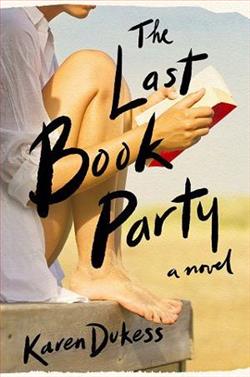Martial Peak Reviews
Karen Dukess's The Last Book Party is a captivating exploration of ambition, identity, and the often-illusory nature of the literary world. Set against the backdrop of 1980s New York and the idyllic beaches of Cape Cod, this novel deftly captures the essence of a young woman's journey to find her place in a world that is both alluring and deceptive.
The protagonist, Eve Rosen, is a 25-year-old aspiring writer who finds herself stuck in a monotonous assistant job, overshadowed by the brilliance of her brother. Her life takes a turn when she is invited to a summer gathering at the home of the renowned New Yorker writer Henry Grey and his poet wife, Tillie. This invitation is not just a social opportunity but a gateway into a world that Eve has long admired from afar. The setting of Cape Cod, with its timeless beaches and artistic allure, serves as a perfect backdrop for Eve's journey of self-discovery.
One of the novel's strengths is its vivid portrayal of the literary world of the 1980s. Dukess paints a picture of a time when the publishing industry was both glamorous and cutthroat, a world where ambition could either propel you to great heights or leave you disillusioned. Through Eve's eyes, readers are given a glimpse into the complexities and contradictions of this world. The exclusive "Book Party" hosted by Henry and Tillie, where attendees dress as literary characters, symbolizes the allure and pretension of the literary elite. It is at this party that Eve's illusions begin to unravel, leading to a deeper understanding of herself and the world she so desperately wanted to be a part of.
Character development is another area where Dukess excels. Eve is a relatable and well-rounded character, whose struggles with self-doubt and ambition resonate with anyone who has ever felt out of place in their chosen field. Her interactions with the other characters, particularly the enigmatic Henry Grey and his artistic son, are nuanced and reveal the complexities of human relationships. Henry, with his charm and intellect, represents the pinnacle of literary success, but also the moral ambiguities that often accompany it. His son, on the other hand, embodies the artistic idealism that Eve finds so appealing, yet ultimately unattainable.
The novel's themes of ambition and identity are intricately woven into the narrative. Eve's journey is not just about finding success in the literary world, but also about understanding her own desires and limitations. The shadow of her brilliant brother looms large, and her struggle to step out of it is a central theme of the book. Dukess explores the idea that ambition can be both a driving force and a source of disillusionment, a duality that is reflected in Eve's experiences over the summer.
Moreover, the novel delves into the concept of authenticity versus pretense. The literary world that Eve is so enamored with is revealed to be rife with superficiality and deception. The "Book Party," with its costumes and personas, serves as a metaphor for the masks people wear in their professional and personal lives. Eve's realization that the world she idolized is not what it seems is a poignant commentary on the nature of ambition and the sacrifices one makes in its pursuit.
In comparison to other novels set in the literary world, such as The Secret History by Donna Tartt or The Marriage Plot by Jeffrey Eugenides, The Last Book Party offers a more intimate and personal exploration of its protagonist's journey. While Tartt and Eugenides focus on the broader implications of ambition and intellectualism, Dukess hones in on the individual experience, making Eve's story both unique and universally relatable.
Overall, The Last Book Party is a beautifully written and thought-provoking novel that captures the complexities of ambition, identity, and the literary world. Karen Dukess has crafted a story that is both engaging and insightful, leaving readers with much to ponder long after the final page is turned. For anyone who has ever dreamed of being part of the literary elite, or who has grappled with their own ambitions, this novel is a must-read.
While the book is set in a specific time and place, its themes are timeless, making it a relevant and resonant read for contemporary audiences. Dukess's ability to blend the personal with the universal ensures that The Last Book Party will remain a cherished addition to the literary canon.
























Reviews 0
Post a Reviews: